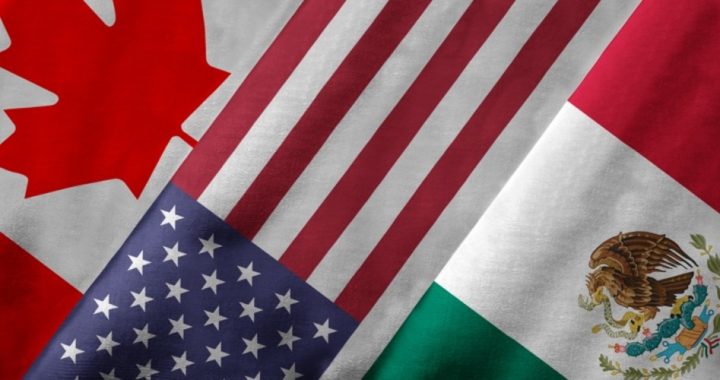
Negotiations for the North American Free Trade Agreement (NAFTA) are set to resume, as high-level Mexican officials, including representatives of Mexican President-elect Andrés Manuel López Obrador (AMLO), travel to Washington today.
Canadian officials will not be participating in today’s NAFTA negotiations.
News of this trip comes just after President Trump sent a letter to President-elect AMLO, warning that if the NAFTA renegotiations are not concluded “quickly,” that he would instead “go a much different route.”
Trump’s “much different route” may be a reference to his previous suggestions of potentially splitting NAFTA from a single trilateral agreement to two separate bilateral agreements — one with Mexico and another with Canada.
While such a move may seem like a favorable step away from the present plurilateral regional trade regime, this may not be the case as all of the bilateral free-trade agreements that the United States has negotiated over the past two decades have been under the authority of world government-building World Trade Organization.
AMLO maintains that the NAFTA renegotiations should continue on a trilateral basis. “At this point, I propose to resume negotiations with the participation of representatives from Mexico, Canada, and the United States. Our transition team would participate in coordination with the officials of the current Mexican government,” AMLO wrote in a prior letter to President Trump dated July 12, 2018.
In Trump’s letter to AMLO, Trump eagerly noted upcoming meetings with AMLO’s representatives. “I understand some of your advisors will meet with their counterparts in the coming months. I welcome these meetings, which will help establish mutual understanding on many critical issues,” Trump wrote.
Today’s talks may shed more light as to whether the United States and Mexico will proceed on either a trilateral or a new bilateral basis. Both the Trump and incoming AMLO administrations have promised favorable deals to their respective nations’ people, but it remains to be seen how the two can or will claim victory.
Nevertheless, the greatest victory that Trump could offer his base is nothing short of pulling out of the globalist accord, reaffirming America’s independence and sovereignty from global-governance structures such as the WTO or regional blocs such as a potential European Union-style North American Union.
A better trade deal for both the United States and Mexico would be one that is free of the globalist WTO and that allows American and Mexican businessmen to freely trade with one another without subordination to global governance structures. Instead of the executive branch unconstitutionally negotiating such sovereignty-killing “free trade agreements,” Article I, Section 8, Clause 3 of the Constitution gives Congress the power to “regulate Commerce with foreign Nations.” Congress should exercise this constitutional power in order to protect or national security, American businesses, and jobs.





